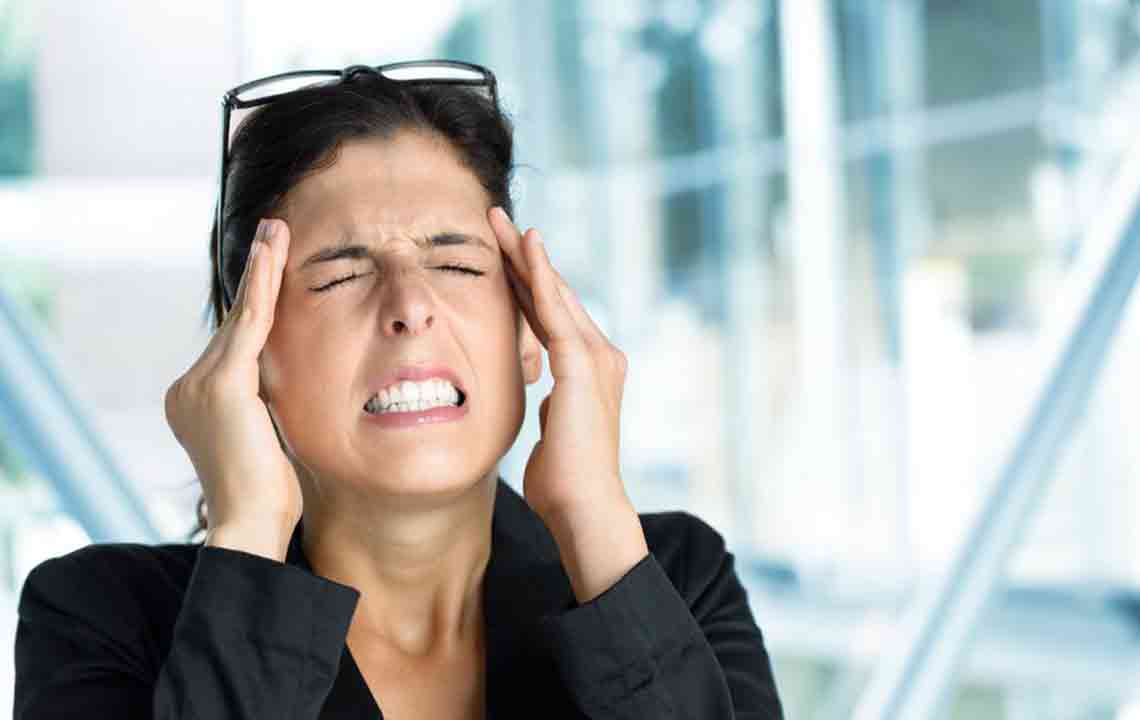Popular and Effective Home Remedies for Migraine

The term ‘migraine’ stems from the Greek word hemicrania (hemi=half and crania = skull) which means pain on one side of the head. Migraines are primarily headaches that are characterised by a sharp pain on only one side of the head, temples, or somewhere behind the eyes or ears. The pain often becomes excruciating, if it is triggered by agents like bright light, sharp sounds, changes in the temperature, humidity, weather, scents and odors, food habits, trigger foods, and the like. Food items containing tyramine like those in cheese or red wine can also be a trigger migraine. Similarly, increased levels of anxiety and stress, lack of sleep, smoking, hormonal imbalance, and bad lifestyle choices often are seen to be responsible for bringing about a migraine. Migraine symptoms include nausea vomiting increased sensitivity to light and sound, scalp tenderness (pain on touching), blurred vision and a general feeling of malaise.
It is proven that migraines can be severe enough and can hinder regular activities. It is also seen that women suffer from a migraine over two to three times more than men. Several studies have been conducted on the cause of a migraine. However, doctors can’t exactly diagnose the actual source of this problem. Many doctors recommend lifestyle changes including eating and following a regular healthy balanced diet, enough water intake to keep yourself hydrated, some exercise, and adequate sleep to prevent these throbbing aches.
While medical treatments including oral medicines and injections can help manage a headache, in most cases, people recommend home remedies for migraine headaches like a cup of coffee. While this can work wonders with some medication, high doses of caffeine can also trigger a headache. Therefore, it is important to incorporate home remedies for migraine headaches that help alleviate the pain, and not aggravate it. If you are someone who gets frequent bouts of nagging aches, here’s a how you can manage your migraine headache.
- Start by noting down the time your headache starts and stops. Jot down the food you ate, and whether you had recently been under any stressful event or circumstances. This will help you identify your triggers, and you can stay away from them.
- Change your dietary pattern and food intake and Maintain your blood sugar levels by eating meals on time.
- Exercising is a powerful stress buster. Walking can prove to be helpful in relaxing your muscles especially those of the neck, shoulder, and face. With all the mood-lifting dopamine, the migraine will significantly reduce in the long run.
- Some home remedies for migraine headaches include motion therapies like massages. Massages can soothe muscles and alleviate the pain. Targeting the muscles of the neck shoulder back can be helpful. Add some aromatherapy, if it suits you.
- Meditation and yoga can also help you relax, reduce your stress levels and in turn lower your migraine attacks.
- Migraines associated with menstruation in women may be due to deficiency of magnesium. Try to incorporate at least 400 to 600 mg of magnesium in your diet. Spinach, yogurt, almonds, avocados, dark chocolates, bananas, etc. are some sources of magnesium.
- Vitamin b12 can also help in reducing migraine attacks. Include a regular dose of the vitamin in the form of a meal or have them as supplements.
- A recent study states that staring at green LED lights helped people relieve 40 to 50 percent of their pain as opposed to those who looked at white light. The direct connection between color, and migraine attacks, however, is yet to be established.
While these lifestyle-related changes can help prevent migraine headaches from recurring in the longer run, it is important you include some home remedies for migraine headaches for permanent relief. Listed below are things that can help.
- Apple cider vinegar: Add a tablespoon of the apple cider vinegar in water with some honey and drink this concoction daily to prevent migraines.
- Fomentation: Apply ice packs to alleviate tension and stress. The process constricts blood vessels and reduces the blood supply to the brain causing a numbing effect that helps.
- Teas: Drinking chamomile tea is one of the best home remedies for a migraine. It has anti-inflammatory and anti-spasmodic properties that bring instant relief. Similarly, you can have dandelion tea it relaxes the mind.
- Ginger: Having ginger can ease a migraine related nausea, its anti-inflammatory properties are a bonus. Have some ginger tea or just chew a piece of it to bring instant relief.
- Aromatherapy: Inhaling essential oils can help relieve the pain, the therapy, however, is quite subjective as some scents can act as triggers in some people.
- Peppermint: A 2008 study published in the Journal of Neuroscience shows that the fragrance of the peppermint herb helps in relieving a headache. Try applying peppermint oil on the part that hurts it can work wonders for many. Rosemary oil can help too.
- Butterbur herb: This is a herb that can be toxic naturally, but its processed root extract has long been used for its pain relieving properties and is now shown to be successful in reducing migraine attacks.



